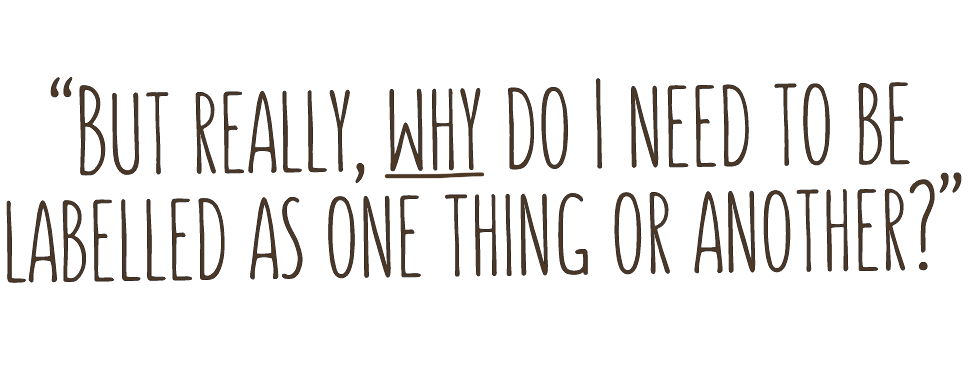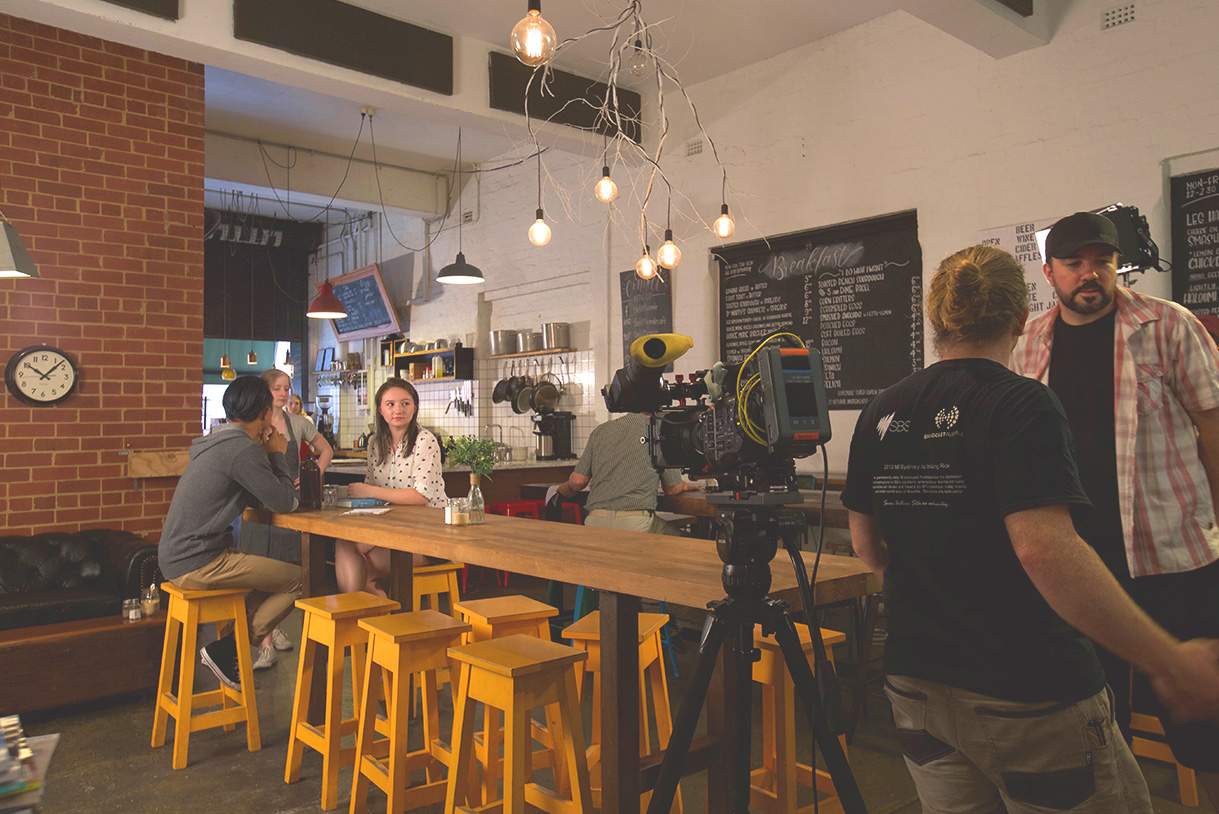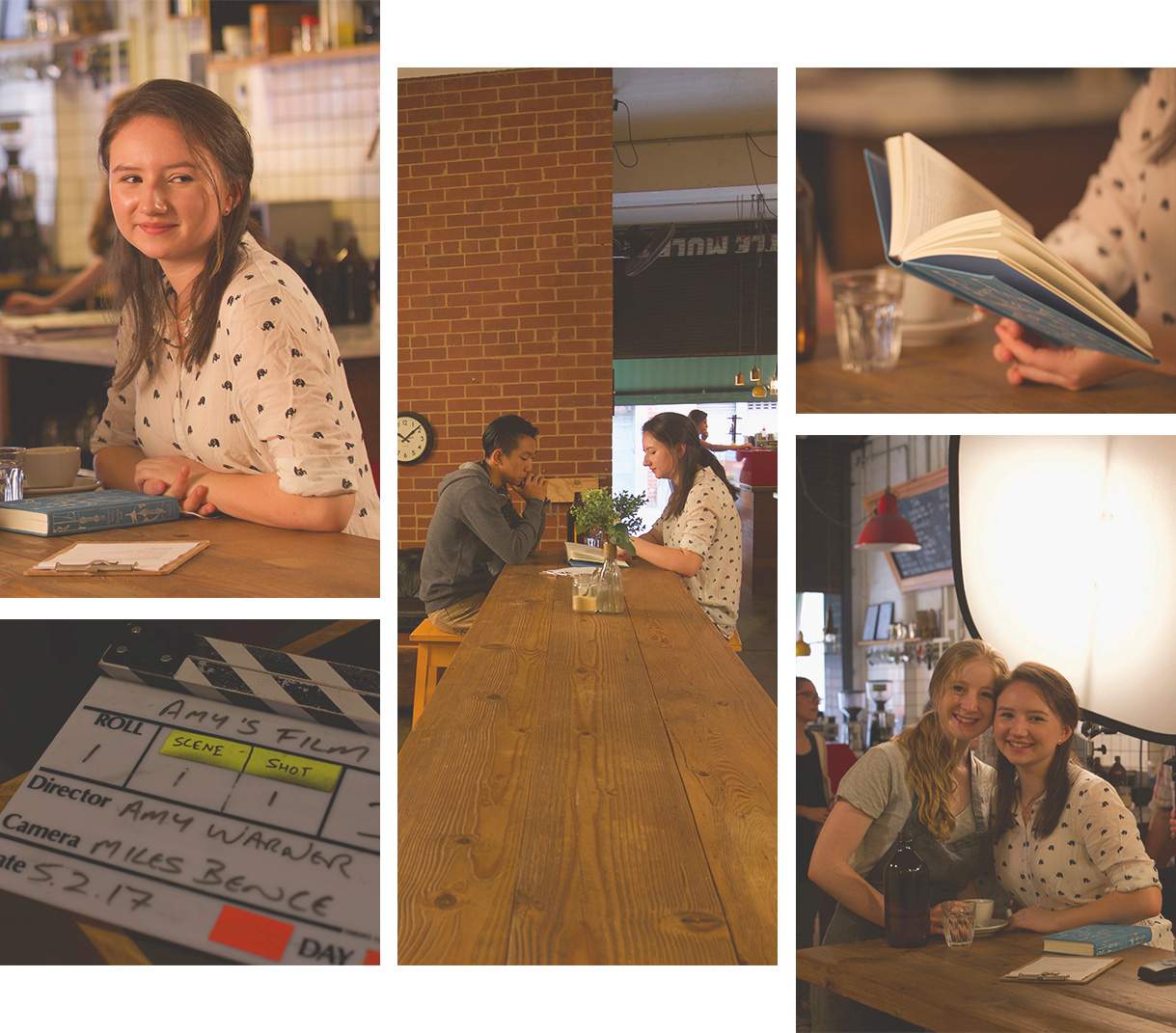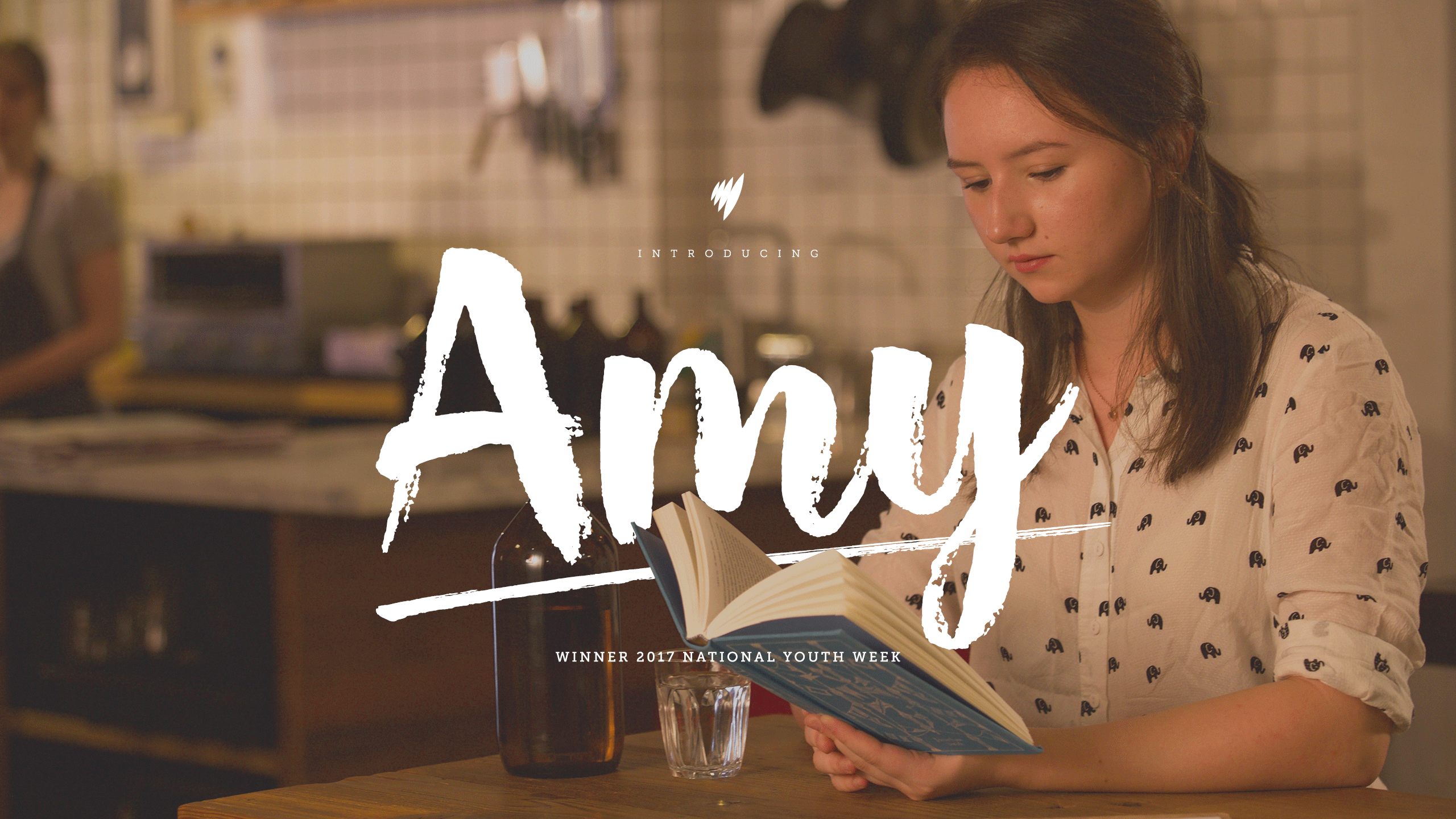
In celebration of National Youth Week, SBS teamed up with the Foundation for Young Australians (FYA) and Department of Social Services (DSS) to give young people the chance to share their story on national television. 15- to 24-year olds across the country were invited to submit a video entry about their unique identity. After several rounds of judging, five winners were chosen to attend a week-long filmmaking and storytelling workshop in Melbourne with FYA. At the end of the workshop, each winner produced a short film about their story. Watch it below.



“I’m not one or the other — I’m both.”
Seventeen-year-old Amy Warner dreams of a world without labels.
From the physical, social, economic to even the political, Amy sees people’s need to apply uncompromising labels to each other as the barrier to ever really getting to know who someone is, as opposed to what someone is.
“As soon as we meet someone — no matter where you are in the world — the first thing we ask someone who appears foreign is ‘where are you from?’. I’ve noticed that if the person in question says ‘Australia’, the response will be ‘No, where are you really from? Where are your parents from?’”
For Amy, a Sydney-sider whose mum is Chinese and whose dad is descendant of the first-fleet convicts, the question is indicative of a society that loves to keep reinforcing our differences.
“My mum always tells me I’m lucky that I don’t look like her – because I look more Caucasian than I do Chinese. I think she thinks this makes it easier [for me] because people think I’m more ‘Australian’. When she immigrated to Australia in the 1970s things were pretty tough if you weren’t a white Australian.”
“But really, why do I need to be labelled as one thing or another?”

This really hit home for Amy during lunch time at school one day. She noticed her friends often sit with people that they think are like them — just the way people seem to end up living in areas where the other residents are similar to them. Figuring out where she would fit in was a process that made Amy hyper-aware of what makes her different — and not in a positive way.
“I sometimes felt like I should sit with the people who I looked the most like because I would fit in better. Even when I was keen to talk to someone who was in a different group to me. Over time I came to realise I don’t have to be one thing or the other, I’m both.”
Amy believes there are times that asking where someone is from can be good — to understand more about their culture, their family or even just how they relate to the world — but it has to be done in a respectful way and in the right context.
However, to label someone without knowing the other traits and aspects that make them interesting as a person — to make assumptions based on the one thing you understand about who they are — means you miss out on what makes them interesting as an individual, Amy says.
“Most of the time it’s unintentional but really, as soon as the question is out, there’s an assumption that I’m part of something other than Australia. It makes me feel like I don’t belong.
“Why not instead ask who I am? Get to know the real me. Beyond the labels you ultimately find that you have more in common than you do differences.”



Exposing her innermost thoughts and feelings to the world isn’t something Amy feels completely comfortable with. Like many people, she is still nutting out exactly who she is and what she’s going to do with her one precious life.
“Who I am, as in the person I show to the people I’m close with, is something I think I’ll continue to explore as I get older. But I do know that, despite being young, I feel like I have something worthwhile to say and I want to share that with other people.”



And through film, Amy finds her creative outlet.
“Film is such a wonderful medium to be able to go beyond what we physically experience, to talk about what we know lies beneath. To take the things that we can’t see and put those into motion.”
Amy sees film as a release for talking about the things she knows, the things she wishes she could change and the things she’s working to understand. Who she is goes beyond her heritage — it is part of her, but she doesn’t believe it should define her — and she feels like many people her age can relate.
Having shot her first film as part of a class at school, Amy has since produced several short films, and was in the process of developing a mini-documentary when the Youth Week Film Competition opportunity came calling.


Through her Youth Week film, Amy is exploring the impact of labels as she has experienced them, with the aim of showing her audience the physical and emotional damage words can have. She hopes to open up people’s mind to the possibilities of the connections we could make, and the friends we could have if we let go of the assumptions we allow ourselves to make.
“I hope that by watching my film people will understand and feel the common connections that we have through our humanity if nothing else.”

Words: Shona McPherson
Mentor Director: Pete Grayson
Mentor Director of Photography: Miles Bence
Photographer: Emily Franke
Set Liaison: Domini Marshall


